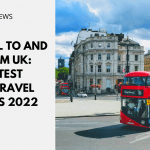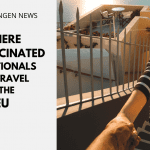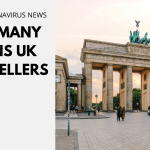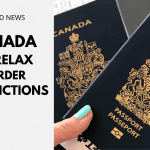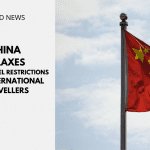The UK’s Travel Quarantine is Lifted, But Countries Like USA, Canada, Russia & China are Still in Place
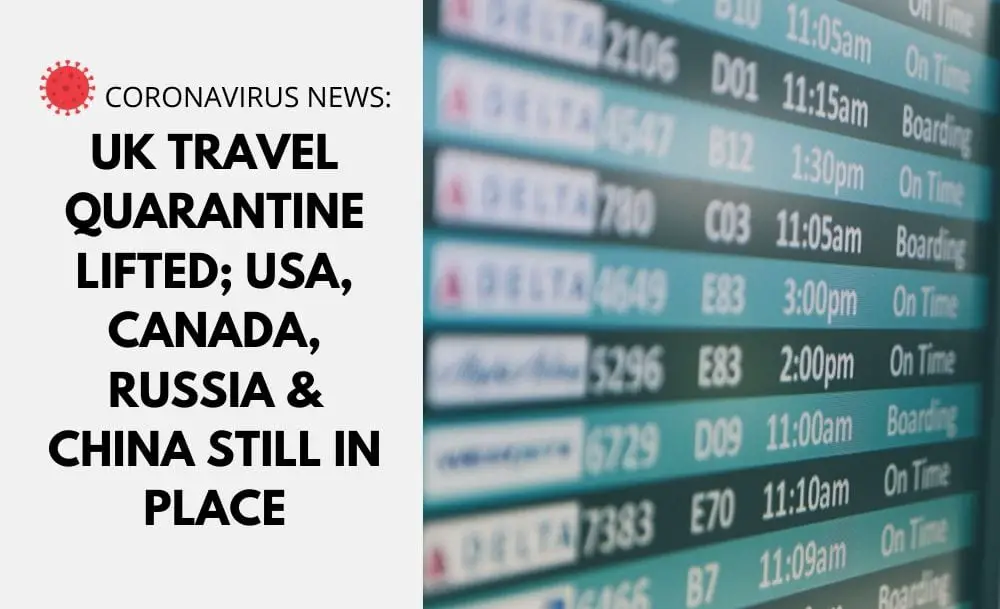

A two-week quarantine period for those entering the UK has been lifted for some travellers to England.
The quarantine policy was introduced in June to protect public health against imported coronavirus cases
But travellers from 59 countries including France and Spain are exempt from quarantine from 10 July.
What are the quarantine rules?
Currently, anyone, including UK nationals, that arrive in the UK by plane, ferry or train are asked to provide an address where you will self-isolate for 14 days.
You may be fined £100 for failing to fill in the form with these details.
It is expected that one out of five eligible passengers will be called or texted to check they are following the rules.
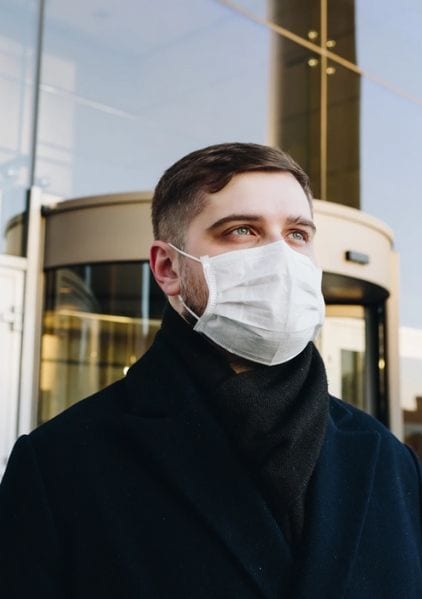

If you are in England, you could be fined up to £1,000 if you fail to self-isolate.
Up until 26th June, no-one has been fined by the UK Border Force, and details of police fines for failing to self-isolate haven't been published yet.
When you arrive in the UK, you should drive your own car, where possible, to your destination address.
If you don't provide a destination address you will be staying at, the UK government will arrange accommodation at your expense.
Once you arrive at your destination you must not use taxis or public transport. You also must not go to work, school, or public areas, or have visitors except for essential support.
That means you are also not allowed to go out to buy food, or other essentials, where you can rely on others or services to provide it for you.
Where Does the Lifting of Quarantine Apply?
Residents and nationals of the UK will be free to travel without facing the 14-day quarantine if they have travelled from the list of countries outlined by the government on the 3rd July.
The Transport Secretary Grant Shapps has published a list of countries where the Government has abandoned its quarantine policy.
Arrivals into England had previously been required to quarantine for two weeks from June 8, but now France, Spain and Italy are among the countries that can be travelled to and from without the need to quarantine.
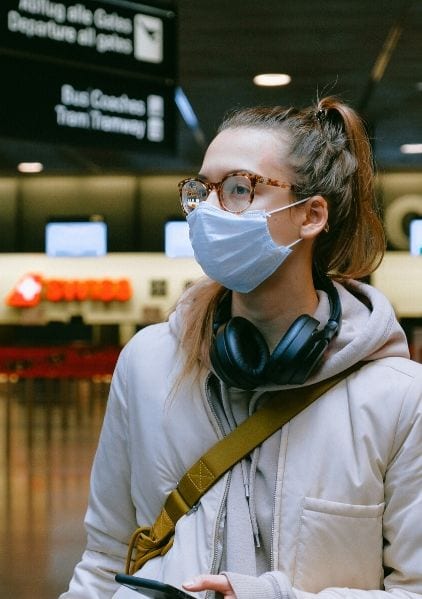

Scotland is expected to keep strict rules in place for all countries until July 15. Both Wales and Scotland haven't decided whether to ease quarantine restrictions.
At her daily coronavirus briefing, the First Minister of Scotland, Ms Sturgeon said that “right now we have no plans to introduce quarantine for people coming to Scotland from other parts of the UK”.
“But from a public health perspective we have to be able to consider all options if it is required to try to stop a resurgence of infection in Scotland,”.
Wales too has made no decision on whether the devolved region of the UK will follow England and ease restrictions on non-essential overseas travel.
Currently, tourism in Wales is not due to re-open until 13 July. Because of this restriction in Wales, residents for other parts of the UK are able to take holidays in France, Germany, Spain, Italy and other European countries but can't go on holiday to Wales until the 13th July.
Northern Ireland will still quarantine travellers arriving from outside the UK and the Republic of Ireland.
The UK government has confirmed that information for travel into Scotland, Wales and Northern Ireland will be published in due course by the devolved administrations.
The 59 countries exempt from England's travel quarantine
They are :
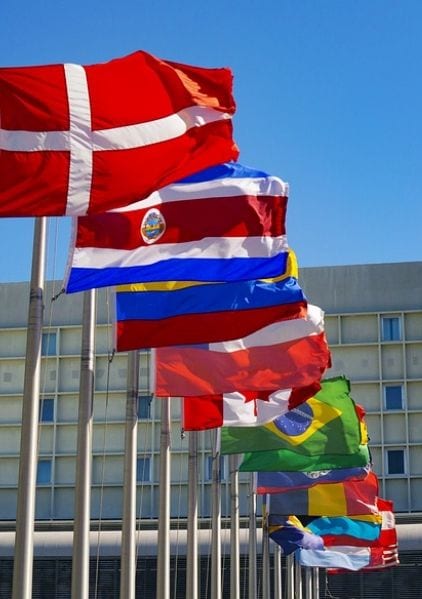

Andorra
Germany
New Zealand
Antigua and Barbuda
Greece
Norway
Aruba
Greenland
Poland
Australia
Grenada
Réunion
Austria
Guadeloupe
San Marino
Bahamas
Hong Kong
Serbia
Barbados
Hungary
Seychelles
Belgium
Iceland
South Korea
Bonaire, Sint Eustatius and Saba
Italy
Spain
Croatia
Jamaica
St Barthélemy
Curaçao
Japan
St Kitts and Nevis
Cyprus
Liechtenstein
St Lucia
Czech Republic
Lithuania
St Pierre and Miquelon
Denmark
Luxembourg
Switzerland
Dominica
Macau
Taiwan
Faroe Islands
Malta
Trinidad and Tobago
Fiji
Mauritius
Turkey
Finland
Monaco
Vatican City
France
Netherlands
Vietnam
French Polynesia
New Caledonia
Ireland, the Channel Islands and the Isle of Man are exempt as they are part of the common travel area.
The 14 British Overseas Territories are also exempt.
This list may be added to over the coming days following further discussions between the UK and international partners.
Noticeable countries not on the list:
There is a glaring number of omissions from a number of countries and allies to the UK. These include Canada, the US and much of Central or South America.
Countries in Africa, the Middle East and most of Asia are also excluded.
Travellers from Sweden, Portugal, Russia and anywhere else are also not on the list will also have to quarantine.
China is also not on the list of countries that do not have to quarantine.
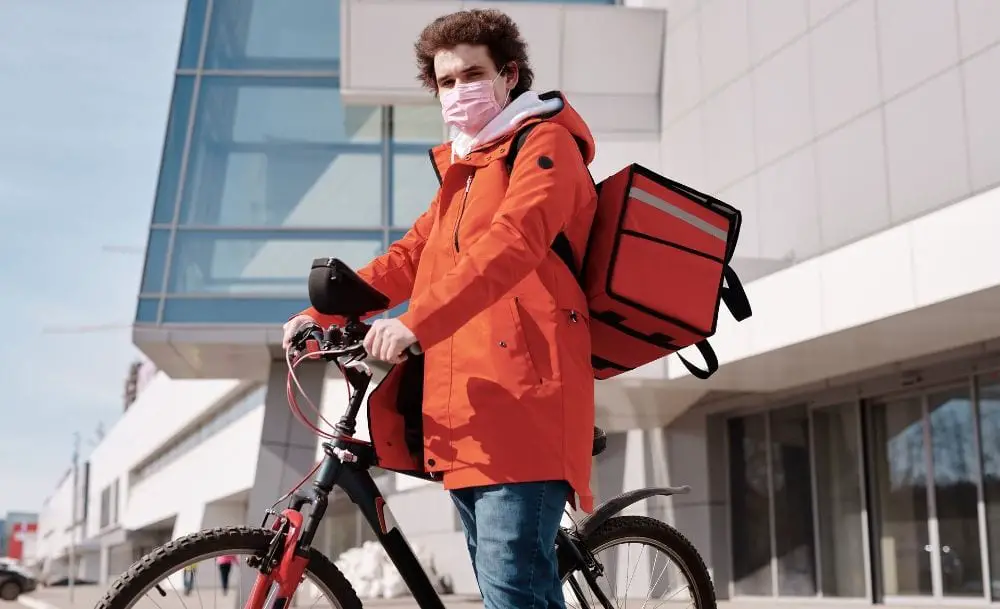

Updating the UK Quarantine List & Exemptions
The UK government will keep the conditions in all the countries and territories under review. If they worsen the UK will not hesitate to reintroduce self-isolation requirements. Additionally, where the situation in countries improve, they will be added to the list with additions for diplomacy.
Under the new measures, international travellers could face spot checks and £1,000 fines if they fail to self-isolate for 14 days after arriving in the UK
Exemptions for road hauliers and medical officials will apply, while the common travel area with Ireland will be unaffected.
Travellers from within the Common Travel Area (Ireland, Isle of Man and Channel Islands).
Other exemptions are for:
- Members of diplomatic missions and consular posts in the UK, officers, servants or representatives of international organisations, representatives at an international or UK conference granted privileges and immunities, and their families or dependents.
This includes representatives of international organisations who are travelling to the UK on official visits, for example to attend negotiations.
You will not need to complete the Public Health passenger locator form. - Representatives of a foreign country or territory and representatives of the British overseas territories, along with their families or dependents travelling to the UK to undertake official business with the UK
This includes representatives of foreign countries or territories who are travelling to the UK on official visits, for example, to attend negotiations.
You will not need to complete the Public Health passenger locator form. - Defence personnel, visiting forces and government contractors who the Ministry of Defence has confirmed are required to deliver essential defence activities
You will not need to complete the Public Health passenger locator form or self-isolate for 14 days. - UK & non-UK officials and contractors required to work on essential border security duties
- Crown servants or government contractors travelling to the UK for essential government work
- People who live in the UK but work in another country and travel between the UK and country of work at least once a week
- People who live outside the UK but work in the UK and travel between their country of residence and the UK at least once a week
- Drivers of goods vehicles or public service vehicles and other employees of community licence holders for the international carriage of goods or passengers by coach and bus
- People transiting airside (individuals who arrive in the UK but do not pass border control)
- Civil aviation inspectors engaged on inspection duties
- Eurotunnel train drivers and crew, Eurotunnel Shuttle drivers, freight train drivers, crew and essential cross-border rail freight workers operating through the Channel Tunnel
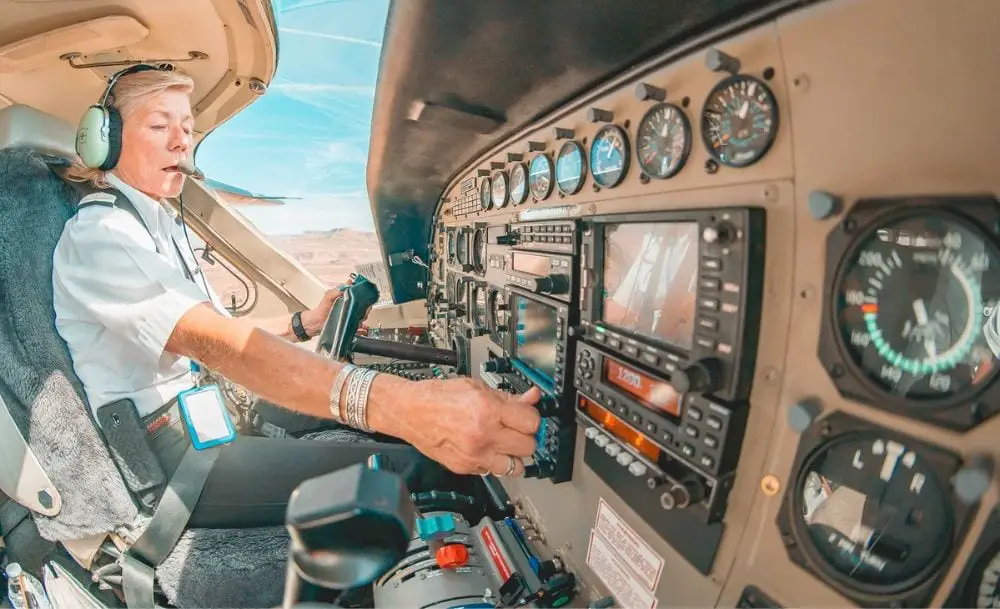

- Drivers and crew of trains operated by Eurostar International Limited, essential cross-border workers working for Eurostar International Limited
- Operational, rail maintenance, security and safety workers working on the Channel Tunnel system
- Workers engaged in essential or emergency works to the rail network as part of a specialist team with or for Network Rail
- Seamen and masters as defined in section 313(1) Merchant Shipping Act 1995, maritime pilots as defined in para 22(1) of schedule 3A of the Merchant Shipping Act 1995, and inspectors and surveyors of ships appointed under section 256 of the Merchant Shipping Act 1995
- Pilots and crew, as defined in paragraph 1 of Schedule 1 to the Air Navigation Order 2016(h), where such crew have travelled to the UK in the course of their work
- Seasonal agricultural workers who have an offer of employment for seasonal work to carry out specific activities in edible horticulture on a named farm
- Workers engaged in essential or emergency works, related to water supplies and sewerage services
- Workers with specialist technical skills for essential or emergency works or services (including commissioning, maintenance, and repairs and safety checks) to ensure the continued production, supply, movement, manufacture, storage or preservation of goods
- Workers with specialist technical skills required for essential or emergency works (including commissioning, maintenance, repairs and safety checks) or to fulfil contractual obligations or warranty specifications in, or in connection with, waste management facilities used for the management, sorting, treatment, recovery, or disposal of waste (including energy from waste)
- Workers with specialist technical skills required for essential or emergency works to ensure the continued safe and secure operations of generating stations, gas or electricity transmission or distribution networks, electricity interconnectors, gas terminals or district or communal heat networks
- Workers required for the continued safe and secure operation, maintenance and essential support services for offshore oil and gas infrastructure in the UK
- Workers with specialist technical skills required for essential or emergency works to ensure the continued safe and secure operations of space infrastructure
- Nuclear personnel who are essential to the safe and secure operations of a licensed nuclear site
- Nuclear emergency responder
- International nuclear safeguards and chemical industry inspectors, representing the Organisation for the Prohibition of Chemical Weapons (OPCW), International Atomic Energy Agency (IAEA) and Euratom
- Specialist aerospace engineers, or specialist workers responsible for ensuring the safe operation of aircraft.
- Workers with specialist technical skills required for essential or emergency works to ensure the continued safe and secure operations of a downstream oil facility that has a capacity in excess of 20,000 tonnes
- Postal workers involved in the transport of mail into and out of the UK
- Individuals arriving to attend pre-arranged treatment, when receiving that treatment in the UK.
You’ll be able to travel to and from your healthcare provider and the place you’re staying in the UK. - Registered health or care professionals travelling to the UK to provide essential healthcare, including where this is not related to coronavirus
If you’ve travelled to the UK for the purpose of transporting, to a healthcare provider in the UK, material which consists of, or includes, human cells or blood which are to be used for the purpose of providing healthcare
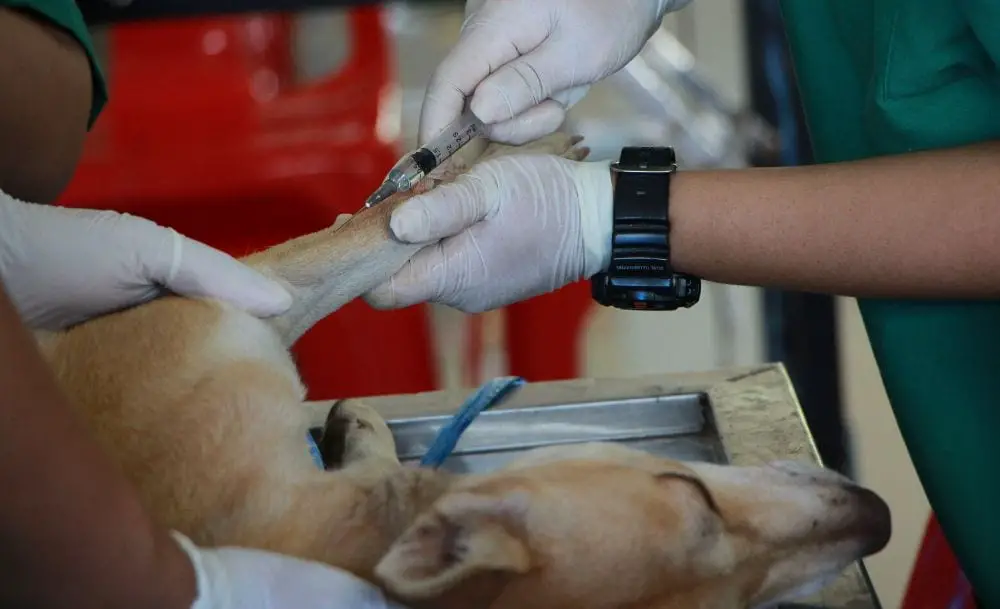

- Qualified persons and responsible persons for human and veterinary medicines, clinical trials, clinical investigations and pharmacovigilance
- Quality assurance inspectors for human and veterinary medicines
- Sponsors and essential persons needed for clinical trials or studies
- People involved in essential maintenance and repair of data infrastructure required to reduce and resolve outages, or in the provision of goods and services to support these activities
- Information technology or telecommunications professionals whose expertise is required to provide an essential or emergency response to threats and incidents relating to the security of any network and information system and ensure the continued operation of any network and information system
- People engaged in urgent or essential work on electronic communications networks
- People engaged in urgent or essential work for the BBC’s broadcasting transmission network and services
- International prison escorts, designated by the relevant Minister under section 5(3) of the Repatriation of Prisoners Act 1984(a)
Travellers will be asked to fill in a form with their contact information, and health officials will perform spot checks to ensure compliance with the measures.
The UK government has said that these measures would apply not just to those arriving by air travel, but by other means of transport such as ferry.
Do other countries have quarantine rules?
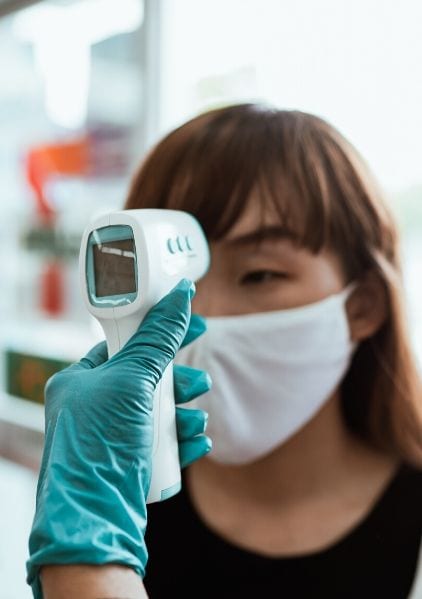

Travellers could also find that you have to enter quarantine when you arrive in another country, even if you do not have to quarantine in the UK. Some countries have introduced screening measures such as temperature checks, and entry restrictions.
- Spain and Germany have no quarantine requirements for travellers from the UK, although travellers to Germany should consult local health authority for specific arrangements
- You will not need to quarantine in Italy either, unless you travelled outside the UK in the 14 days prior to your arrival there
- In France, you are still asked to voluntarily self-isolate for 14 days, but once the UK officially lifts its quarantine rules, the French government is expected to reciprocate
- It is still not possible for most UK travellers to enter the United States
- Dubai in United Arab Emirates will welcome tourists, including from the UK, from 7 July. But they must present a recent Covid-19 negative certificate or undergo testing on arrival
- UK travellers need a special exemption visa to travel to Australia
- Greece, another popular tourist destination, has banned direct flights from the UK until 15 July
- How to apply for an adult dependant relative visa to come to the UK - 22 March 2023
- India Has Strike Deals To Get Working Holiday Visas For Young Indian - 27 January 2023
- The Best European Cities To Move To In 2023 - 1 January 2023

